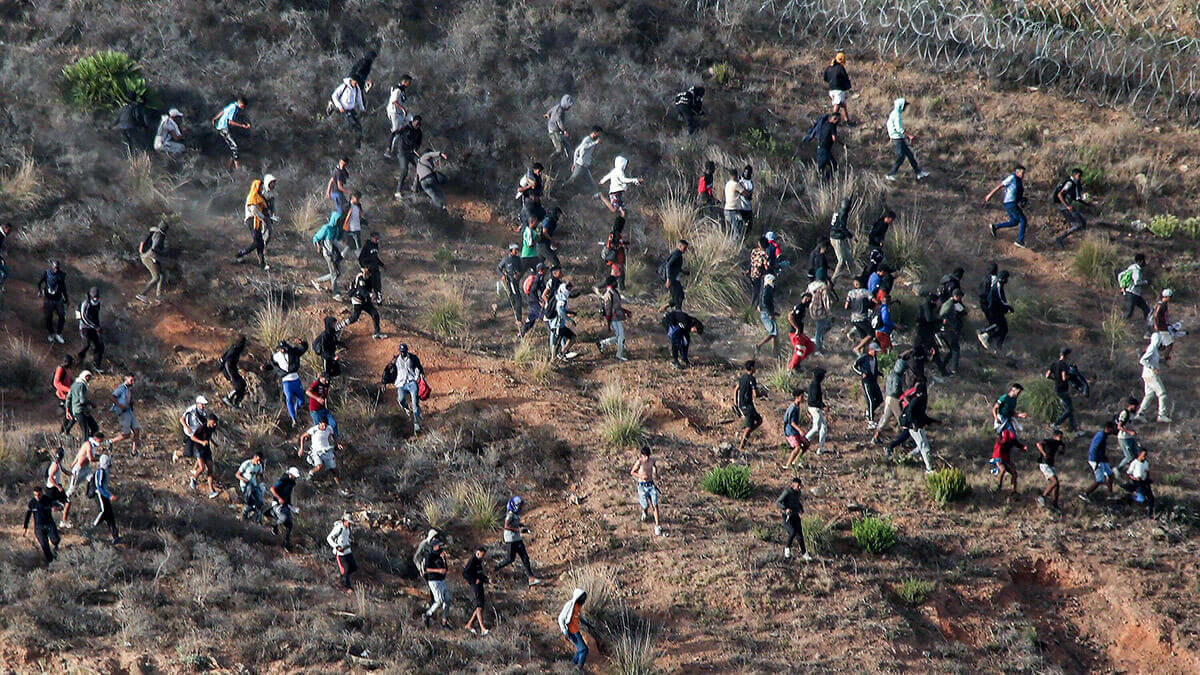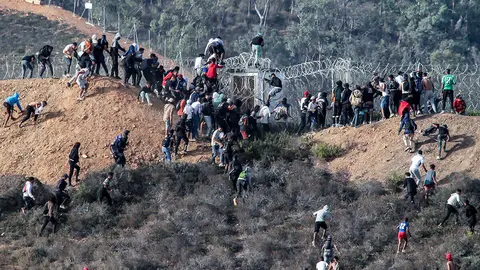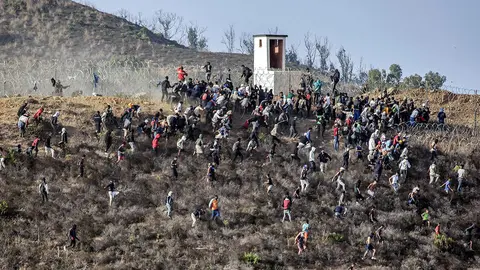Youssef Aabou denounces conspiracy against Morocco

Youssef Aabou, a famous Moroccan communicator with a large number of followers on social networks, has denounced the existing campaigns against Morocco orchestrated by political rivals, such as Algeria.
Youssef Aabou is the head of the Misaha communication platform and has, for example, 1,800,000 followers on Facebook and 6,000,000 million on YouTube, which gives him a wide audience for the messages he launches. This is something to bear in mind when analysing certain issues.
One of these issues has to do with the campaigns launched against Morocco, which the Moroccan communicator denounces.
‘The media campaigns to which Morocco is subjected have a common objective: to damage the image of the Kingdom and try to weaken its radiance, which everyone sees, and which some people ignore,’ said Youssef Aabou.
‘This influence is known to everyone, but concealed by some of our compatriots, either out of ignorance or Machiavellianism. It was foreseeable that the attraction of Morocco internationally, especially after hosting major international and sporting events, as well as the dynamics of development on the horizon have caused internal and external parties to denigrate and try to undermine the confidence of national and international public opinion,’ said Aabou himself, referring to the attacks on the Moroccan kingdom at a time when the nation is going through a great moment both internally and externally. A good situation thanks to a great period of social and economic development with important development programmes carried out by the Moroccan state under the directives of King Mohammed VI, and also thanks to an effective external diplomacy that has reaped many successes such as the support of more than 100 countries for Morocco's Autonomy Plan for Western Sahara.
Aabou points to the enemies of the Moroccan kingdom, which ‘is really experiencing a boom in all areas, aimed at arousing jealousy and greed among those who see our country as an enemy and undermine the morale of men, with His Majesty the King at the head, in the hope of seeing our train slow down and not move forward’.
Among these campaigns is the one allegedly carried out by Ali Aarras, who has been singled out by Morocco at the time for alleged jihadist terrorism, regarding the issue of mass assaults on the border crossings of Ceuta and Melilla by illegal migrants. These campaigns point the finger at Morocco and the Moroccan security services for the treatment of people who tried to cross the borders of Ceuta and Melilla clandestinely to jump from Morocco to Spain.
‘In recent days, we have witnessed a sad situation in which thousands of young people have tried to emigrate through the city of Ceuta. These young people respond to the initiative and the call to simultaneously head en masse towards the border of Ceuta. Then, suddenly, some media and social network accounts have broadcast strange images in order to shock Moroccan citizens and push them into a confrontation with the state, but also to tarnish the image of the country in international public opinion’, Aabou denounced

‘They are trying to confuse and undermine the confidence of national and international public opinion in the Moroccan state and its institutions, and among them is Ali Aarrass, who is aligned with the Rif separatists, and who took advantage of this year's celebration of Humanity Day in Paris to once again promote accusations against the Moroccan security services’, Youssef Aabou pointed out.
Aabou questions why this is happening at this time. ‘And why is attention being diverted from the social aspects that led to these events and the government responses that must be provided to reduce the unaffordable cost of living for the citizen in a difficult and tense economic moment? Why is the focus on the security forces and their intervention in the aspect of immigrants, instead of recognising that this point is but one part of a set of events in which economic, political, cultural and historical factors are intertwined?’ asks the Moroccan communicator.
‘The crux of the matter is the retrenchment of the Moroccan security forces and the prejudice against them by various parties, both inside and outside the country. These media campaigns aim to weaken the police institution at all costs. Therefore, the end justifies the means for those behind these malicious activities,’ said Aabou.
Youssef Aabou speaks of conspiracy: ‘After reviewing the events in Fnideq (Castillejos), as well as the scepticism embodied in the media and on social networks , my attention is now focused by what is happening in Europe in relation to Morocco about these events, such as, for example, the demonstration of Rifian separatists openly protected and supported by the Algerian regime, which squanders its people's budget without limit to finance these separatists in order to extort the endemic crisis in which they are immersed and their complexes with regard to Morocco. At the same time, some fringe groups whose common denominator is hostility towards their own country have emerged in a context of rhetoric having all the characteristics of language elements dictated by a party that sets the angles of attack and the tempo of these. It is a global scheme that needs to be paid attention to,’ he explains.
Precisely, in the case of the massive assault of clandestine migrants on the borders of Ceuta and Melilla, Morocco received praise from Spain for the good functioning of the organised mechanism to prevent the massive clandestine crossings across the borders between Morocco and Spain, mainly by Moroccan, Algerian and Tunisian migrants, who were encouraged through messages on social networks to carry out these illegal migratory movements on the day of 15 September. This operation began thanks to suspicious activity on social networks that alerted the Moroccan and Spanish intelligence services, and police sources suggest that there is a possibility that the influence of Algerian intelligence services may have been part of this phenomenon that encouraged migrants to illegally cross the borders of Ceuta and Melilla.
The example of Spanish praise for the good performance of Spanish security forces puts the criticism of the Moroccan kingdom in a bad light, as Youssef Aabou tries to explain.










